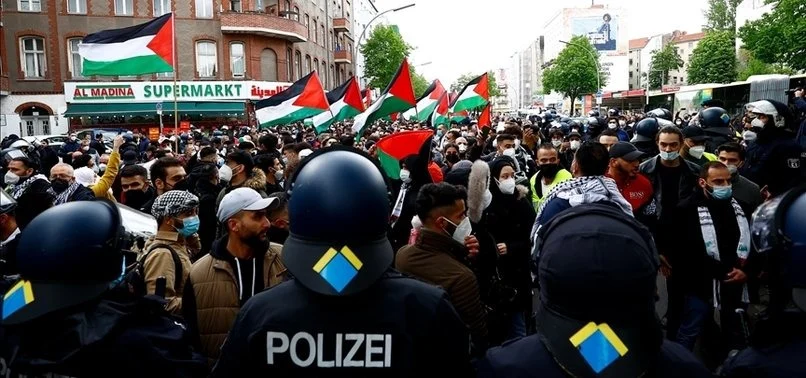Freedom of Expression in Berlin: Woman Fined for Pro-Palestinian Slogan
In a controversial ruling, a Berlin court has fined a 22-year-old woman named Ava M. €600 for using the phrase “from the river to the sea, Palestine will be free” at a protest. The decision, announced on August 8, 2024, has sparked a heated debate about freedom of expression in Berlin and the broader implications of such rulings.
The incident occurred at a banned gathering in Berlin’s Neukoelln district on October 11, shortly after the Hamas attack on Israel on October 7. According to a court spokeswoman, the timing of the slogan’s use led the court to interpret it as a denial of Israel’s right to exist and an endorsement of the attack. This interpretation played a key role in the court’s decision to fine Ava M.
The phrase “from the river to the sea, Palestine will be free” has been a point of contention. While some view it as a call for the destruction of Israel, others see it as a plea for equality and democratic coexistence for Palestinians and Israelis. The slogan was outlawed by German Interior Minister Nancy Faeser in November as part of a broader ban on the activities of Hamas in Germany. However, the legal standing of this ban has been disputed, with courts across Germany delivering varying verdicts on similar cases.
Lawyer Alexander Gorski, representing Ava M., criticized the ruling, calling it “a dark day for freedom of expression.” He argued that his client’s intention was merely to express hope for a peaceful future in the region. Gorski announced plans to appeal the decision, emphasizing the importance of safeguarding freedom of expression in Berlin.
The backdrop to this controversy is the deadly conflict that erupted following the October 7 Hamas attack on southern Israel, which resulted in the deaths of 1,195 people, mostly civilians. Israel’s subsequent military response aimed at eliminating Hamas has led to the deaths of at least 39,653 people in Gaza, according to the health ministry in the Hamas-ruled region.
Germany’s staunch support for Israel in this conflict is influenced by its historical guilt over the Holocaust, during which six million Jews were murdered by the Nazis. This unwavering support has, however, led to criticism that Palestinian voices are being marginalized within Germany.
The ruling against Ava M. highlights the ongoing tensions and legal complexities surrounding the Israel-Palestine conflict and raises critical questions about the limits of freedom of expression in democratic societies. As the appeal process unfolds, it will be crucial to monitor how German courts balance national security concerns with the fundamental right to free speech.
